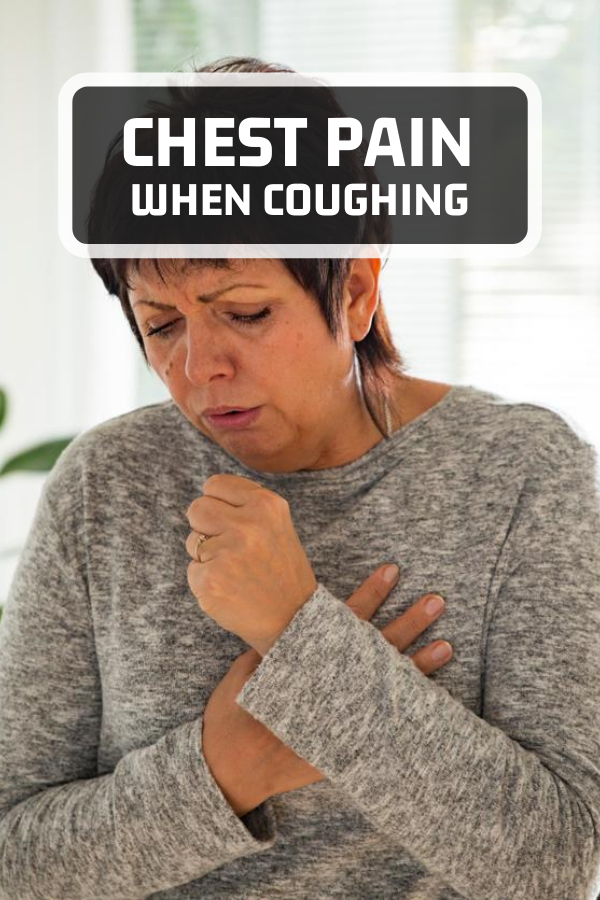When an individual mentions “pain in the left or right side of the chest while coughing”, the causes may span from common cold to serious lung disorders like pneumonia or bronchitis.
Chest pain while coughing!! Well, this is a very common complaint among people with common respiratory issues. One of the vital body organs – the lungs dwells in the chest area; therefore, this is apparent that any infection adversely affecting the upper respiratory tract or lungs are supposedly to cause chest pain, which turns severe when coughing.
Causes
Common cold
Common cold is defined as a viral infection of the upper respiratory tract and it causes runny nose, chest congestion and trouble breathing. Sneezing, wheezing and coughing activity associated with common cold may cause subtle to sharp chest pain.
Injury
An injury that causes pulled chest muscle is painful and the distress is prominent while coughing.
Tuberculosis (or TB)
TB causes severe chest pain when coughing. Tb is a severe bacterial infection that badly affects the lungs. Initially, you may experience massive sweating during night and this might be followed by frequent episodes of coughing. Additionally, TB patients suffer from a productive cough that may produce blood or mucous. This is a contagious infection and sharing a room with an infected person is the riskiest way of getting TB.
Influenza (Flu)
This condition is considered to be a severe type of cold that can bring along chest pain while coughing and inhaling. Albeit, this respiratory issue initially emulates the warning signs of common cold, the onset of is sudden and swiftly worsens with time. Besides high fever, muscle and headaches, one is likely to feel dry cough that prompts sharp pain in the chest area.
Pneumonia
This ailment causes inflammation of lungs, in most instances due to bacterial infection. The inception of pneumonia typically triggers with fever and cough, followed by chest pain and respiratory problems. Coughing in pneumonia worsens the patient’s chest discomfort.
Pneumothorax
This is another respiratory condition can instigate chest pain when coughing. Also known as collapsed lungs, in this medical condition the air inhaled enters the forbidden area located between the lungs’ exterior and cheat wall. As the air persists to fill in, lungs find it laborious to expand properly. This happens when the accumulated air in the space asserts massive pressure on lungs from outside. Pneumothorax is usually marked by breathing disorders and chest pain that worsens during an episode of cough. A chest injury (caused by an accident or gunshot) or pre-existing lung disease like pneumonia and TB can cause pneumothorax.
Asthma
Asthma is chronically inflamed lungs’ airways, causes breathing ailments that worsen during winters. Due to constricted airways, patients make a wheezing sound when breathing. Shortness of breath causes difficulty sleeping followed by chest tightness, particularly when coughing are a few common symptoms of Asthma. Although the cause of asthma is still unknown, exposure to respiratory irritants like mold, cold air and pollen can trigger onset of asthma symptoms.
Costochondritis
This is a condition, wherein the cartilage that connects the breastbone to the rib is swollen. Ribs are a cage-like structure made of bones surrounding the chest. When this cartilage connecting the ribs to the breastbone is inflamed, aside from pain on touching the breastbone, you may feel pain in chest while coughing.
Ways to Decrease Chest Pain when Coughing
Mucus build up due to respiratory problems can cause sharp pain in the chest, especially while coughing. So, getting rid of this accumulated mucus is the key to alleviate pain. Drinking plenty of water and inhaling steam helps to liquefy the mucus, in turn helping to facilitate its expulsion. Following a healthy diet and avoiding smoking can also contribute to reduce build up of mucus. One should also stay away from milk and dairy products as it promotes production of mucus. Use of air conditioners and air filters can also help to improve indoor air quality. These devices will ensure that your home is free from air contaminants such as molds, that are known to worsen respiratory problems.
After knowing the factors responsible for ‘chest hurts when I cough’, you might be eager to be aware of treatment that relieves this sort of discomfort. Taking painkillers like aspirin or other NSAIDs like naproxen and ibuprofen may help to relieve chest pain. In case, the patient is suffering from frequent episodes of cough, taking an over the counter cough syrup is recommended. In order to diagnose the underlying cause, a chest X-ray is necessary. Blood and sputum tests may also be required to confirm the diagnosis. A chest X-ray will assist in identifying abnormalities that have affected the lungs, or its associated tissues. After examining the results of a chest X-ray, the doctors will advice appropriate treatment to cure the pain.
Enjoyed Chest Pain When Coughing? Share it with your friends so they too can follow the Superfoodsliving journey.
Share on Pinterest
